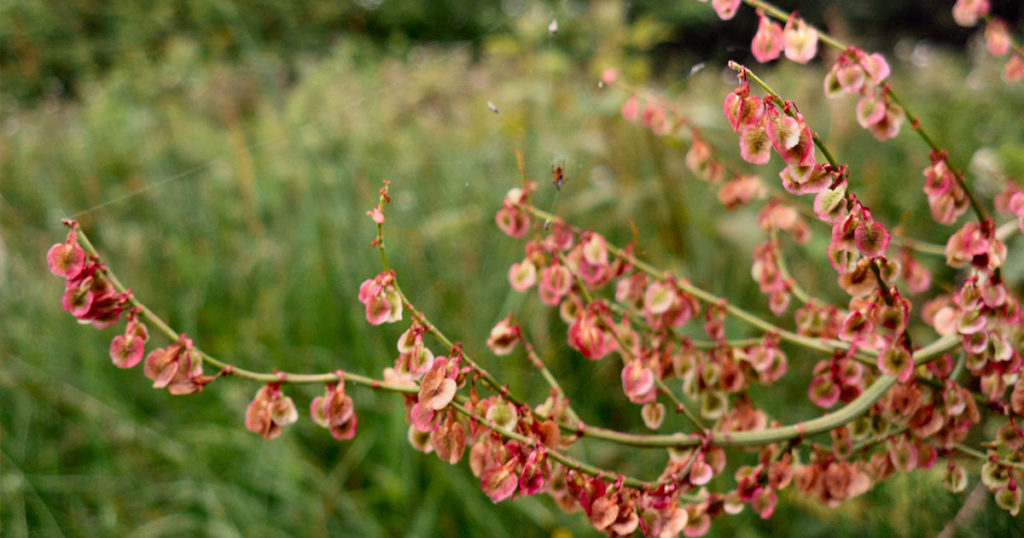
A year is made up of a certain series and number of sensations and thoughts which have their language in nature. Now I am ice, now I am sorrel.
—Henry David Thoreau, Journal, June 6, 1857
“My sister had a gun, and as we walked she would throw bottles into the air and shoot as many as she could before they hit the ground. I had nothing but to walk into nowhere and the wide sunset space with the star. Ten watercolors were made from that star.” In a way one’s interest is compelled as much by the sister Claudia with the gun as by the painter Georgia with the star, but only the painter left us this shining record. Ten watercolors were made from that star.
—Joan Didion, “Georgia O’Keeffe,” 1976
A little patience, and we shall see the reign of witches pass over, their spells dissolve, and the people, recovering their true sight, restore their government to its true principles. … [F]or this is a game where principles are the stake.
—Thomas Jefferson, letter to John Taylor, June 4, 1798
I feel that if any songs are going to come out of World War III, we’d better start writing them now.
—Tom Lehrer, “So Long, Man,” 1965
The early flowers were a constant joy. …
[H]alf a dozen little ones of different species, even though not beautiful, meant more to me than a hundred big ones all of a kind. A special proof of scientific as distinguished from aesthetic interest is to care for the hidden and insignificant.
—David Starr Jordan, The Days of a Man, 1922
I have more confidence in the dead than the living.
—William Hazlitt, “On Reading Old Books,” Lectures on the English Comic Writers, 1819
The innocent are so few that two of them seldom meet—when they do meet, their victims lie strewn all round.
—Elizabeth Bowen, The Death of the Heart, 1938
As the slave/god Mercurius says in Amphitruo, kings are for tragedy, slaves are for comedy: high and low, in life and onstage. In a century racked by war throughout the Mediterranean, mass enslavements and city sackings filled the landscape with people who had lost everything. …
Comedians have often remarked that comedy starts with anger, which is a way of saying that comedy springs from history, from lived experience.
—Amy Richlin, Slave Theater in the Roman Republic, 2018
[W]hat fascinated me [was] the asparagus, tinged with ultramarine and rosy pink which ran from their heads, finely stippled in mauve and azure, through a series of imperceptible changes to their white feet, still stained a little by the soil of their garden-bed: a rainbow-loveliness that was not of this world.
—Marcel Proust, Swann’s Way, tr. by C. K. Scott Moncrieff, 1913
Homesickness is a feeling that many know and suffer from; I on the other hand feel a pain less known, and its name is “Out-sickness.” When the snow melts, the stork arrives, and the first steamships race off, then I feel the painful travel unrest.
—Hans Christian Andersen, letter to Henriette Scavenius, 1856
I scroll & scroll …
New book. New post.
New ping. A new tab, then another.
Papers on the floor, scattered & stacked.
So many journals, unbroken white spines,
waiting. Did you hear that new new?
I start to text back. Ellipsis, then I forget.
I balk. I lazy the bed. I wallow when I write.
I truth when I lie. I throw a book
when a poem undoes me.
—Tiana Clark, “My Therapist Wants to Know about My Relationship to Work,” Poetry, November 2018
When from under the barn the cat brings a similar litter,—
Two yellow and black, and one that looks in between,—
Though it all happened before, I cannot grow bitter :
I rejoice in the spring, as though no spring ever had been.
—Theodore Roethke, “Vernal Sentiment,” Open House, 1941
[The yellow eel] can pass through swamps and ditches. It doesn’t let circumstance stand in its way, and when all aquatic possibilities have been exhausted, it can take to dry land, slithering through moist brush and grass in pushes toward new waters that can last for hours. The eel is, thus, a fish that transcends the piscine condition. Perhaps it doesn’t even realize it is a fish.
—Patrik Svensson, The Book of Eels, 2020
I accept the clangor and jangle of contrary tendencies. I find my account in sots and bores also. … The great gifts are not got by analysis. Everything good is on the highway.
—Ralph Waldo Emerson, “Experience,” Essays: Second Series, 1844
The effect of the bright and sunny aspects of Nature in soothing and giving cheerfulness is never more remarkable than in declining health. I look upon it as a piece of excellent good fortune to have the whole summer before one to die in.
—John Stuart Mill, Diary, April 3, 1854
And she didn’t know their names, but friends she knew they were, friends without names, songs without words, always the best.
—Virginia Woolf, Mrs. Dalloway, 1925
History repeats itself, but the special call of an art which has passed away is never reproduced. It is as utterly gone out of the world as the song of a destroyed wild bird.
—Joseph Conrad, The Mirror of the Sea, 1906
This is the spring time
But not in time’s covenant. Now the hedgerow
Is blanched for an hour with transitory blossom
Of snow, a bloom more sudden
Than that of summer, neither budding nor fading,
Not in the scheme of generation.
Where is the summer, the unimaginable
Zero summer?
—T. S. Eliot, Little Gidding, 1942

